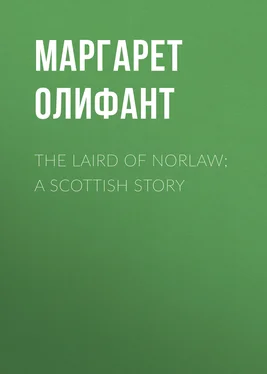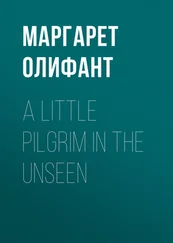Маргарет Олифант - The Laird of Norlaw; A Scottish Story
Здесь есть возможность читать онлайн «Маргарет Олифант - The Laird of Norlaw; A Scottish Story» — ознакомительный отрывок электронной книги совершенно бесплатно, а после прочтения отрывка купить полную версию. В некоторых случаях можно слушать аудио, скачать через торрент в формате fb2 и присутствует краткое содержание. Жанр: foreign_prose, literature_19, foreign_antique, на английском языке. Описание произведения, (предисловие) а так же отзывы посетителей доступны на портале библиотеки ЛибКат.
- Название:The Laird of Norlaw; A Scottish Story
- Автор:
- Жанр:
- Год:неизвестен
- ISBN:нет данных
- Рейтинг книги:3 / 5. Голосов: 1
-
Избранное:Добавить в избранное
- Отзывы:
-
Ваша оценка:
- 60
- 1
- 2
- 3
- 4
- 5
The Laird of Norlaw; A Scottish Story: краткое содержание, описание и аннотация
Предлагаем к чтению аннотацию, описание, краткое содержание или предисловие (зависит от того, что написал сам автор книги «The Laird of Norlaw; A Scottish Story»). Если вы не нашли необходимую информацию о книге — напишите в комментариях, мы постараемся отыскать её.
The Laird of Norlaw; A Scottish Story — читать онлайн ознакомительный отрывок
Ниже представлен текст книги, разбитый по страницам. Система сохранения места последней прочитанной страницы, позволяет с удобством читать онлайн бесплатно книгу «The Laird of Norlaw; A Scottish Story», без необходимости каждый раз заново искать на чём Вы остановились. Поставьте закладку, и сможете в любой момент перейти на страницу, на которой закончили чтение.
Интервал:
Закладка:
“Something ails you,” said the little woman—“are you tired, Huntley? Oh, I mind when grief was here, what hard, hard work it was keeping up a smile. Never mind me; look sorrowful, if you like, and take a rest. It makes me think how I felt myself when dear mamma died, to see you keeping up a face like that.”
“Oh, Katie, I wish we had you at Norlaw!” cried the lad, with sudden earnestness.
“Yes,” said Katie, simply, “if you had only had a sister, Huntley!—but Mrs. Livingstone does not care for strangers. And mothers are sometimes fondest of their sons—everybody says so; but I know you’re the eldest, and every thing comes on you.”
“Patie is the wisest,” said Huntley, with a momentary smile; “I think he could manage better without me—and, Katie, I’ll have to go away.”
She looked up at him with a question in her eyes. She asked nothing audibly, but merely suspended her work, and turned, with a friendly anxiety, her steady, kind gaze upon Huntley’s face. The young man was not “in love"—he was still too familiar with this sisterly face, and too much occupied with all the sudden troubles in which he had himself been plunged, to think of any such thing; but, unconsciously, Huntley paused before answering—paused to take the peaceful scene, the home apartment, the bright serious eyes into his memory, a picture of strange influence and tenderness never to fade.
“I thought of going to Australia,” he said; “they say a man with a will to work and some knowledge, especially of cattle, is sure to thrive there. It matters but little, I think, Katie, whether I’m a hundred or a thousand miles away, so long as I am away; and I think the best place for me is there.”
“But Australia is many a thousand miles away,” said Katie, “at the other end of the world; and you can not come home to see your friends as you might do from a nearer place. If you go there, Huntley, we’ll never see you again.”
“I’ll go there, that I may come back,” said Huntley, eagerly; then he began to play with the ball of cotton which Katie was mending her children’s stockings with; then he looked round the room wistfully once more. “And when I do come home,” said the lad, “Katie, I wonder, I wonder, what changes I’ll see here?”
“Oh, whisht!” cried Katie, with a little overflow of tears; “papa’s not young, but he’s no’ very old; and if it’s God’s will, we’ll aye be the same.”
“It might be ten—fifteen years,” said Huntley; “and I was not thinking of the minister; I was thinking of—other things.”
Katie did not ask what these other things might be. The color rose in her cheek a little, but not enough to confuse her.
“The little ones will be all grown up,” she said, with a quiet laugh; “perhaps some of them away too, Huntley, into the battle; and me an old Katie with a cap, keeping house for papa.”
She glanced across the table for her cotton as she spoke, and, meeting Huntley’s eye, blushed a little more, yet was not discomposed. The young man’s heart beat louder, he could not very well tell why. Some confused words came rushing into his mind, but none of them were fit to say. His own face flushed with a hasty flood of unaccustomed and unascertained emotions; he rose up hastily, scarcely knowing how it was that the repose of the manse parlor was broken, yet feeling it. Dr. Logan called Katie from his study, and Huntley answered the call. He gave back the ball of cotton, and said hurriedly:—
“Dinna forget me, Katie, when that time comes;” and so went away.
That time! what time? Huntley could have given no explanation of what he meant; neither could Katie, who put up her hand softly to her eyes, and smiled a very faint smile, and said, “Poor boy!” with a little sigh as the door closed upon him. But perhaps explanations would have done but little good, and every thing answered perfectly well as it was.
Huntley came with a blush into the presence of the innocent and unconscious minister, who had forgotten his own youth many a long day ago, and had never yet been roused into consciousness that his little Katie might be something else than a good child and elder sister, in the perverse imaginations of other people. He looked up from his desk and his manuscript, and pushed up his spectacles on his forehead when the young man entered.
“Huntley! is that you? What’s wrong, my man?” said Dr. Logan. He thought the lad could not have seen Katie, or he must have become more composed by this time; and the excellent pastor thought of nothing else than some new accident or coil at Norlaw.
“Nothing’s wrong,” said Huntley, who only blushed the more in shamefaced self-consciousness, “but I wanted to ask your advice.”
Dr. Logan laid down his pen with resignation; it was a new pen, sharply nibbed, such as the minister loved, and he had just got a capital idea for the third head of his sermon, an idea which might be nowhere before Huntley had half stated his case. The minister paused a moment, trying very hard to connect his idea with something in the room which might recall it to him when his visitor was gone. He tried the inkstand, the pretty paper-weight on the table, and even his large red and green pocket-handkerchief, in vain. At last he thought he had secured it on the knob of the glass door of his bookcase; he nodded ruefully to Huntley and made a knot on his handkerchief.
“Now, Huntley, proceed, my boy,” said the minister with a sigh; he held the knot on the handkerchief in his hand, and fixed his eyes on the bookcase. Certainly he had it safe now.
Huntley, glad to get out of his embarrassment so, plunged at once into his tale. He could not quite make out how it was that the excellent doctor looked so steadily at the bookcase, and gave himself such divided and wandering answers. However, at last the minister forgot his idea, and threw away the handkerchief in despair.
“Eh? what was that you were saying, Huntley?” said Dr. Logan. The story had to be gone over again. But, to Huntley’s surprise, his friend knew all about it, more about it indeed than he did himself, and shook his head when Huntley vehemently declared his conviction that he was the true heir of Melmar.
“I make no doubt,” said the minister, “that if she could be found, the will would stand—but I mind the writer laying it down very clear to me and Norlaw at the time that ye behoved to produce her alive or dead—that is, by evidence in the last case, no doubt—before your case could stand. It might be well worth a man’s while that had enough to keep him, and nothing else to do—but I would not advise you to put off your time seeking Mary Huntley. You’re the eldest son and the prop of your family. I would not advise it, Huntley, my man.”
“Nor do I mean it,” said Huntley, with a blush at his own wild fancies; “and if I had known that you knew it so well, I should not even have troubled you. No, doctor, I’ve written to your friend in Edinburgh—I want him to take all our affairs in hand, and save, if it is possible, Norlaw itself for my mother. What we’ll have to begin upon after, I can’t very well tell—but Cosmo is the only one of us too young to set out for himself. I will leave the other matter with Mr. Cassilis, and he can do what he thinks best.”
“Very wise, Huntley, very wise,” said the minister, whose mind was still fumbling after his idea; “and you’re thinking of going abroad yourself, they tell me?—I don’t doubt it’s a shock to your mother, but I would say it was the best thing you could do. Charlie Cassilis, no doubt, will be coming here. He’s aye very willing to come to the manse. I’ll make Katie write him a line to-day, to say we’ll expect him—and any thing I can do to further the business, you know you can rely upon—eh? what was that you said?”
Читать дальшеИнтервал:
Закладка:
Похожие книги на «The Laird of Norlaw; A Scottish Story»
Представляем Вашему вниманию похожие книги на «The Laird of Norlaw; A Scottish Story» списком для выбора. Мы отобрали схожую по названию и смыслу литературу в надежде предоставить читателям больше вариантов отыскать новые, интересные, ещё непрочитанные произведения.
Обсуждение, отзывы о книге «The Laird of Norlaw; A Scottish Story» и просто собственные мнения читателей. Оставьте ваши комментарии, напишите, что Вы думаете о произведении, его смысле или главных героях. Укажите что конкретно понравилось, а что нет, и почему Вы так считаете.












